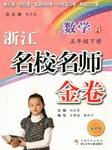题目内容
Thanks to a combination of young businessmen, large numbers of university students and revitalization (新生) efforts by the local and national governments, today’s Nanjing has an 36 of youthful exuberance (繁茂) that would have been 37 only a few decades ago. 38 , the city, a booming city of 6.5 million on the banks of the Yangtze River some 185 miles west of Shanghai, bears 39 resemblance to the former capital of China that suffered the worst cruelty and violence of World War II.
40 Nanjing has shown a remarkable capacity for reinvention during its 2,500-year history. And in recent years, the city has moved 41 its tragic past to become a vital engine of China’s economic growth, thanks 42 to its position in the middle of China’s prosperous eastern seaboard. Growth has also 43 thanks to improved ground transportation: A new bullet train linking Nanjing and Shanghai started service last year, 44 travel time between the cities from several hours to just 75 minutes, and a Beijing-Shanghai high-speed line is 45 to open later this year, with a stop in Nanjing. Within the city, two metro lines were built in the last few years; 15 more are planned to begin service by 2030.
Signs of Nanjing’s 46 wealth and optimism can be seen everywhere. In the heart of the downtown Xinjiekou district, a bronze statue of Sun Yat-sen, 47 the father of modern China, looks 48 over a busy 49 area.
There is perhaps no more 50 symbol of the city’s transformation than the Zifeng Tower, a 1,480-foot skyscraper that opened its doors last May. 51 offices, restaurants and an InterContinental hotel, the tower is the second-tallest building in China and billed as the seventh-tallest in the world.
Underlying all this development is a large Chinese and 52 student population — there are several major universities, plus a branch of Johns Hopkins’s international studies school. In fact, art and music 53 in all sorts of places.
On a larger 54 , local government officials and private investors are pushing the city as a rising center for contemporary art and architecture, hoping to attract 55 from the neon-bathed streets of its neighbor Shanghai.
| 【小题1】 |
|
| 【小题2】 |
|
| 【小题3】 |
|
| 【小题4】 |
|
| 【小题5】 |
|
| 【小题6】 |
|
| 【小题7】 |
|
| 【小题8】 |
|
| 【小题9】 |
|
| 【小题10】 |
|
| 【小题11】 |
|
| 【小题12】 |
|
| 【小题13】 |
|
| 【小题14】 |
|
| 【小题15】 |
|
| 【小题16】 |
|
| 【小题17】 |
|
| 【小题18】 |
|
| 【小题19】 |
|
| 【小题20】 |
|
【小题1】C 【小题1】B 【小题1】A 【小题1】D 【小题1】B 【小题1】A【小题1】C 【小题1】D【小题1】B 【小题1】A 【小题1】C 【小题1】C 【小题1】A 【小题1】D【小题1】B【小题1】D 【小题1】D【小题1】A 【小题1】C【小题1】C
解析

 浙江名校名师金卷系列答案
浙江名校名师金卷系列答案_____his timely help , Kate overcame the hardship at last.
|
A.For |
B.Thanks to |
C.As a result |
D.Because |
Dear Economist,
My newly-wedded wife and I are deeply in love.There is, however, one issue that threatens the happiness of our marriage.I absolutely insist on shopping at Walmart.My wife, meanwhile, would rather avoid Walmart at all costs.
I have recently tried to convince her that not only does Walmart offer the lowest prices known to man, but that the chain is also a force for good―lower prices mean better standards of living for all consumers, increased global trade means a tighter-knit(紧密团结的) international community, and efficient operations translate into higher productivity growth for the economy.My wife complains about poor labour policies, the “fact” that Walmart squeezes suppliers, and that it puts local shops out of business.
Who is right? Will our marriage survive?
Brian Gee
Dear Brian,
I have to agree with you about Walmart.Jason Furman, then an economist at New York University, now an adviser to President Obama, famously argued in 2005 that Walmart was unwittingly (不知不觉地) a progressive success story.The chain’s prices don’t much affect me (I prefer Whole Foods) but Furman estimated that they benefited low-and-middle-income Americans to the sum of around $250 billion a year.
Walmart does not pay much, so it may depress wages.Then again, it may increase wages by offering jobs to the otherwise-unemployed.Either way, the benefits of low prices to Walmart shoppers far outweigh any seemingly reasonable costs to Walmart employees.And while it is true that Walmart employees tend to be poor, the same is true of Walmart shoppers.
Armed with this information you can face your wife with confidence.You are sure to win the conversation.The divorce is likely to be more argued.
Economist
1.What concerns Brian Gee so much that he wrote the letter?
|
A.His wife refuses to shop at Walmart. |
|
B.They are faced with a divorce. |
|
C.They can’t afford the costs of shopping at Walmart. |
|
D.They are in conflict about shopping at Walmart. |
2.Brian Gee’s wife tends to hold the opinion that _________.
|
A.it is wrong for Walmart to depress its employees’ wages |
|
B.consumers’ lives have improved thanks to Walmart |
|
C.Walmart’s business operation increases productivity in economy |
|
D.Walmart’s business increases global trade |
3.What can be inferred from the reply letter?
|
A.Some employees accept the low pay to keep the job. |
|
B.Walmart appeals to only poor consumers and poor employees. |
|
C.Employees suffer from Walmart’s low prices more than consumers. |
|
D.Jason Furman, a New York University economist, spoke highly of Walmart. |